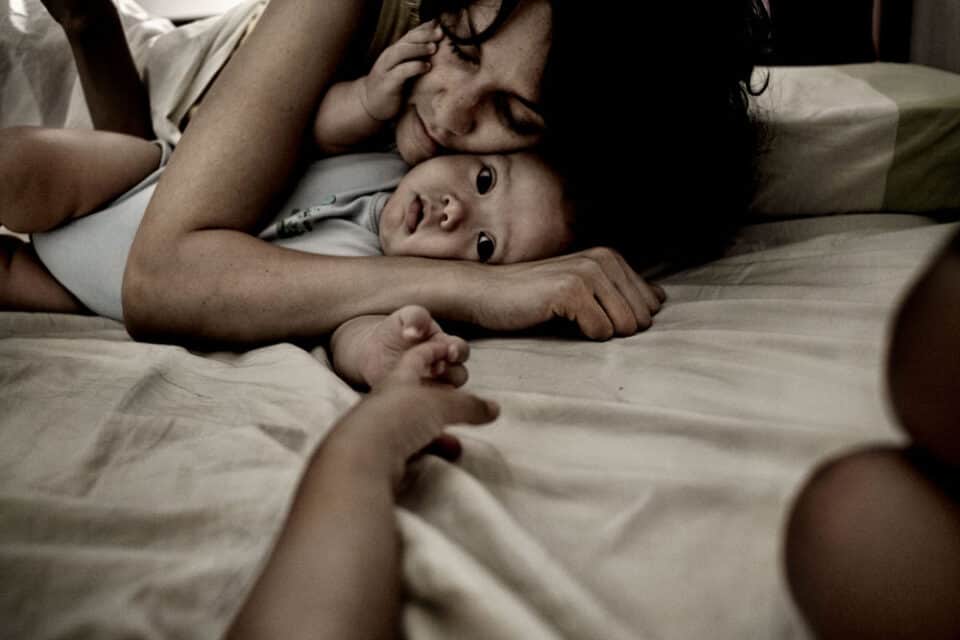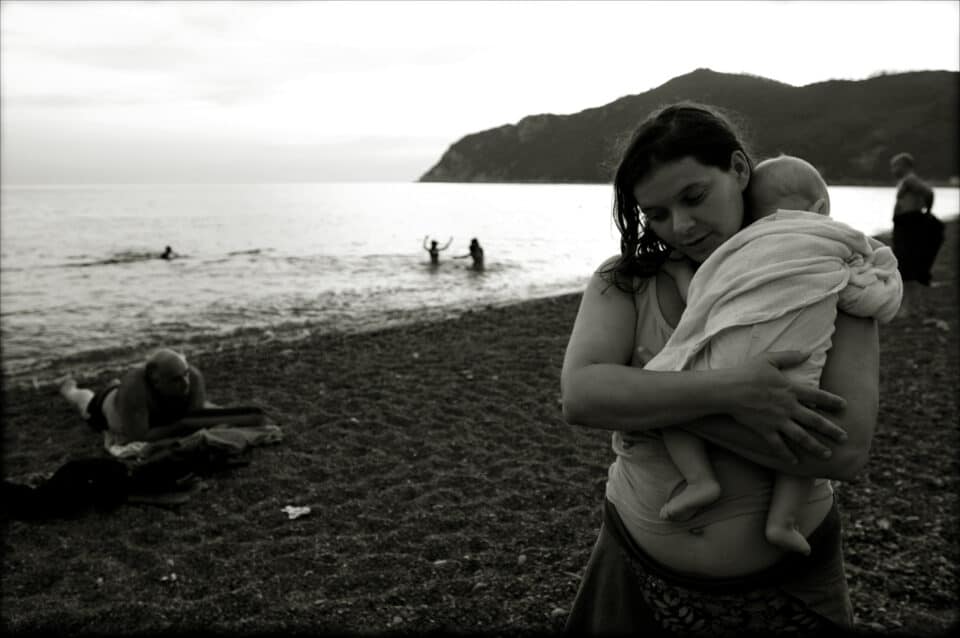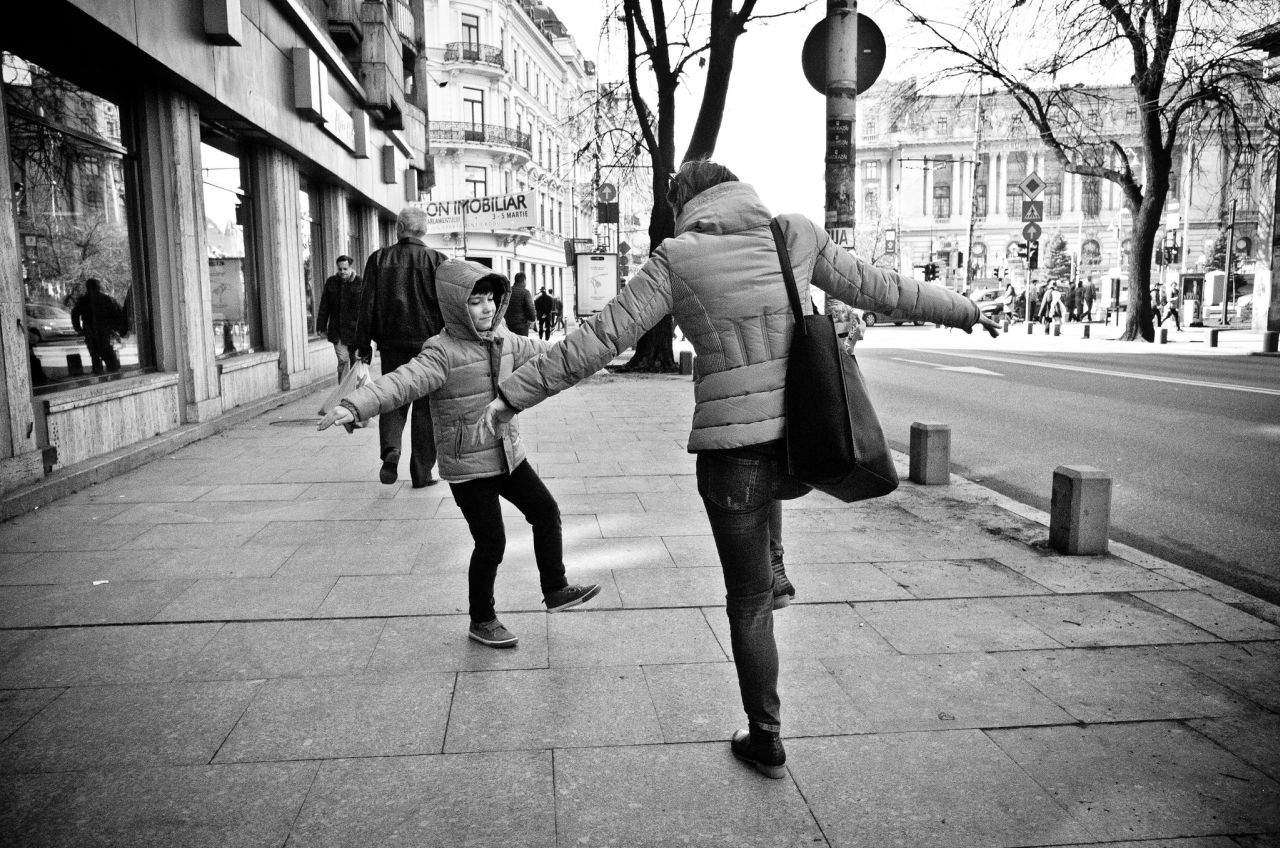Our children watch everything we do. While it means we always have to mind our behavior, being on display 24/7 can also be a positive. Moms have an incredible duty and opportunity to teach their kids how to be better people. Showing them sustainable and environmentally conscious practices can help them learn responsibility, take better care of themselves and do good for the planet.

Since you’re an eco-conscious Earth Mama, you probably already model sustainable practices for your kids at home. You can also make sure you’re doing each of the tasks and activities below. By putting them into regular practice, you’re teaching social awareness and sustainability on a personal and community level.
- Teach Them About Mother Nature
Children are able to witness the beauty and majesty of Mother Nature from an early age. The wind, sunshine and trees are all delightful to an innocent, young mind, which makes it easy to explain why they need protection. As you skip rocks by the lake or dip your toes in the sand, tell your kids about the planet they live on, how they’re surrounded by living creatures and how we need to take care of our one Earth in order to keep it for the future.
Simplify the lesson for smaller kids with one or two topics. Show them a small plant or tree sapling and explain to them how it needs water and sunlight in order to grow. Then, tell them how caring for it feeds us and keeps us strong. This information will help them build their knowledge about nature and the environment over time. Books about nature and regular walks outside are also an excellent way to help your little one build a relationship with the great outdoors.
- Recycle at Home
If your community has a recycling program, participate. Make sure every member of the family knows about the program and their part in it. Toddlers can help mom or dad place recyclable items in the bin, while older children can gather up plastic bottles and cardboard from around the house every weekend.
As the CEO of Recycling, make sure the right items are going in the bin and that the little ones know when they’ve mistakenly recycled a trash item. Ask your partner to be on board, too. If both of you are united about the process, the children are more likely to make it a habit.
- Try Reusable Baby and Child Products
In our age of convenience, disposable products are more popular than ever. Since your kids will get plenty of exposure to throwaway items elsewhere, show them the value of reusing and repurposing supplies at home. While you save money, your children will learn environmentally-friendly home practices as well as how to make the most of what they have.
Cloth wipes and reusable cloth diapers are must-haves for an eco-friendly nursery. Baby-friendly blenders and food processors help parents make delicious purees and mashes. Reusable swim diapers are also available in-store and online. If you plan on traveling, you can find multi-use baby food bags. After you use them to hold fruits, veggies or yogurts, simply wash the bags and reuse them again.

- Turn off the Lights (and Water!)
Kids always have the tendency to keep the lights on when they’re not using them. Sometimes, they’ll even forget they left the sink faucet on—or flush the toilet far too many times. Gently remind them that turning the water and lights off will save energy and money. It’s not only good for the planet, it also helps the family!
Encourage your children to make it a habit to save energy. Sing a short rhyme each time someone forgets to turn off a bedroom lamp. If you have multiple kids, you can also keep a fun weekly tally. The child who remembers the most gets to pick the Friday night board game—or the Sunday morning cartoon.
- Buy Local
Take your kids grocery shopping with you. Many communities have farmers markets on the weekend, which is an excellent family bonding activity. While you’ll get the freshest local produce and small batch goods, you’ll also have fun strolling the aisles of vegetables and plants together. Once you get home, you’ll enjoy a fresh meal and peace of mind knowing what you fed your baby or toddler is natural and organic.
Resist the urge to shop at chain and box stores. Instead, frequent the neighborhood produce shop or the family-owned organic food market. Your kids will be delighted by the in-store experiences and delicious snacks.
- Grow Your Own Food
Whether you have a small corner on your balcony or a large plot of land in your backyard, it’s possible to grow some of your own food at home. It doesn’t have to be difficult or take a lot of time. Start by picking up a few of your favorite herbs or vegetables at your neighborhood plant nursery or home improvement store. If you’re new to gardening, ask an employee about how much water, space and sunlight a certain plant will need. As long as you have the time and the room, you’re free to experiment with the produce that is best for your family.
Herbs like basil, oregano and rosemary are easy to grow and add delicious flavor to a variety of meals. They don’t need much room to grow, either. Peppers, lettuce and tomatoes are also relatively simple for beginning green thumbs. Let your child shop with you to pick out the plants and then allow them to come with you as you tend to them. As they water them, watch them grow and eat them at the dinner table, they’ll learn to appreciate home-grown food and fresh organic produce.
- Leave the Car Behind
Using less gasoline is a great way to reduce your environmental footprint. As often as you can, leave the car at home and walk or bike instead. Chat or sing songs as you make your journey to your destination.
If your kids ask why you’re not driving, tell them about the benefits of being a pedestrian. It’s not only good for the planet, it’s also great exercise and allows you to spend time together as family. As long as your trip is safe and comfortable, your little ones should enjoy it in the end. The best ways to get somewhere with babies and toddlers include strollers, wagons and baby wraps. Bigger kids can ride their own bicycle, grab the rollerblades or glide on a skateboard.
- Ditch the Paper and Plastic Goods
Plasticware and paper goods are convenient for barbecues and birthday parties, but they’re not sustainable. Use disposable items as little as possible. While it does mean more dishes for you, it also models healthy, environmentally conscious home practices for your kids. Make things easier on yourself by investing in a set of dishwasher-safe and microwave-safe plates, cups and cutlery. If you don’t want to run loads of dishes on the daily, a second set is a lifesaver.
Encourage your kids to take multiple forks and cups only when necessary. Help them decide if they have any room to add an extra item to their plate instead of taking two of them. These conversations will make them savvy problem solvers and environmentally conscious adults. Like ditching the car, it’ll also ensure your family makes a bigger impact on the world at large.
Raising Eco-Conscious Kids
If you keep Mother Nature and the environment in your conversations and practices at home, your kids can become thoughtful and eco-conscious people. In addition to the activities above, consider buying socially conscious products the entire family can use. There are plenty of sustainable beauty brands, baby-focused companies and food vendors in your neighborhood, throughout your community and online to stock your pantry, bathroom and closet.
Many experienced parents say the key to raising great kids is consistency. If you’re concerned about modeling sustainable practices for the long haul, simply focus on the same reusing, recycling and upcycling over and over. In time, they’ll become valuable tools for your child’s growth and development. After all, your little one wants to be just like you. If you love Mother Nature, they will, too.

My daughter absolutely loves to help me with our garden. It makes me so happy to see her smile when she picks something! She walks around with it forever, just loving it.